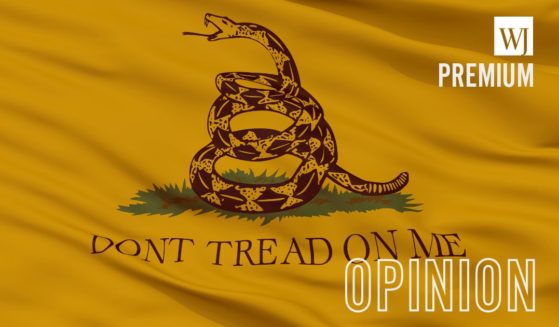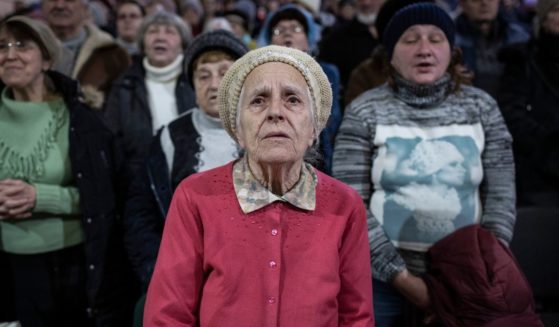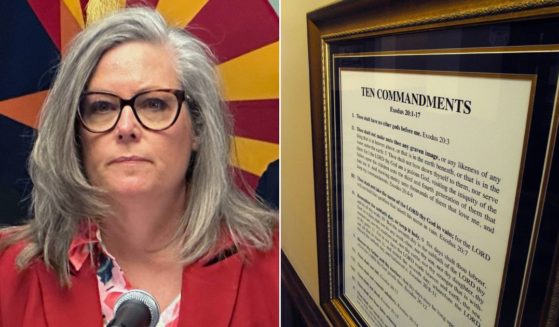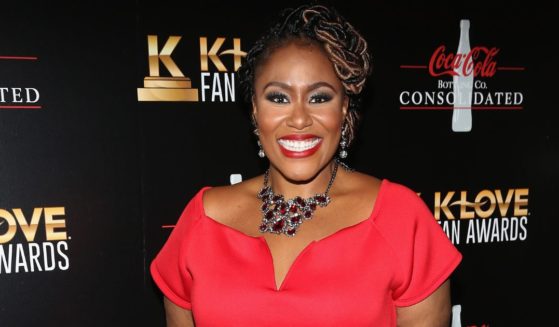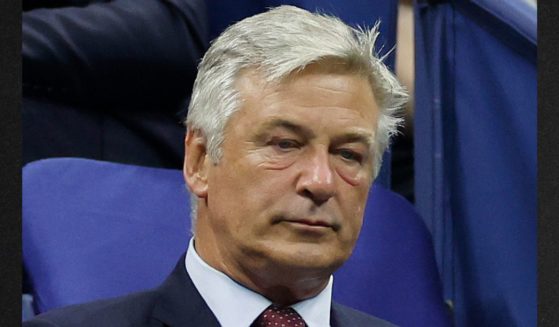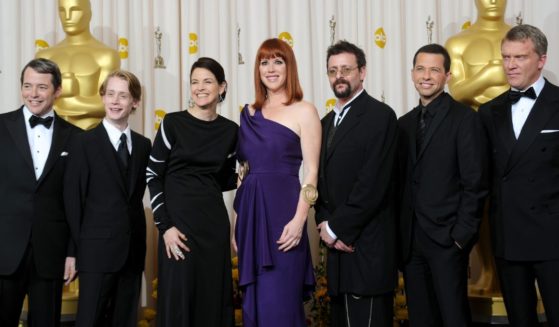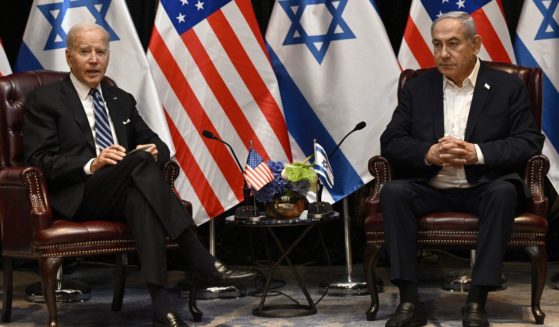'Soviet-Style' Punishment Imposed on College Student After He Posted Photo with Gun
Rising Fordham University senior Austin Tong made two posts to his social media account which intimidated no one and expressed no racial bias.
One, posted on June 4, showed him holding a rifle, a perfectly legal thing to do. The caption read: “Don’t tread on me. #198964.” That hashtag refers to June 4, 1989 — the date of the peak of the Tiananmen Square protests.
On June 3, meanwhile, he’d posted a picture of David Dorn, a black retired St. Louis police captain who was killed as he responded to an armed robbery at a pawn shop during a riot associated with Black Lives Matter protests in the city.
“Y’all a bunch of hypocrites,” Tong wrote.
For expressing those opinions and making a political statement with a firearm, Tong was found in violation of “Regulations relating to Bias and/or Hate Crimes” and “Threats/Intimidation,” according to a Tuesday letter from Keith Eldredge, Fordham University’s dean of students, that Tong posted to Instagram.
Welcome to America, where private universities now feel free to impose what Tong rightly pegged as “Soviet-style interrogation and punishment” over wholly inoffensive political speech.
“As part of Tong’s disciplinary probation, which will remain in effect until he graduates, Tong is forbidden from representing the university in any official capacity,” Campus Reform reported Thursday. “This includes a ban on him running for or holding leadership roles in student organizations and participation in varsity or club sports.
“Tong’s access to the university campus without permission from the dean has also been restricted and he is required to complete the rest of his courses online. Tong must also undergo implicit bias training with the Office of Multicultural Affairs and write an apology letter.”
In other words, he needs to be rehabilitated in order to receive his degree.
Tong says he was first notified of the university’s issues with his posts in a June 8 letter from Eldredge.
As for the David Dorn post, Tong told Campus Reform: “I expressed my disappointment in people that did not care about the death of a black policeman, something which never should’ve happened.”
Tong enumerated the same position in a letter to Fordham, saying: “I believe that Black Lives Matter means that all Black Lives matter, including the lost life of a patriotic police officer that dedicated his life to his family and country This post was not only expressive of my remorse that a police officer’s life was lost, but also to reaffirm my belief that the lives of everyone matter.”
As for Tong’s Tiananmen photo: “I want to honor the memory of an important Chinese Democracy Movement and the appreciation of the right to bear arms in America,” he told Campus Reform.
“As an immigrant, a big beauty of America to me is the right it gives its citizens to bear arms, not only to protect themselves but also to keep the government in check.”
Those are correct answers in the context of truth and logic. When it comes to academia, however, one is racked with an involuntary cringe after considering how those thoughts were received in Fordham’s Office of Multicultural Affairs.
They were also received poorly among certain Fordham students, some of whom expressed shock they shared space with someone who had an opinion that differed from theirs.
“Austin, I am extremely disappointed that you are actively utilizing your platform to invalidate the BLM movement rather than using your time to facilitate conversations about the issues at hand/trying to raise awareness,” one student commented on Tong’s Dorn post, according to Fordham’s student newspaper, The Observer.
The Observer pointed out that the University Code of Conduct prohibits “threats, intimidation, coercion, and/or other conduct which threatens or endangers the health or safety of any person.”
I’d be curious where someone found any of that here — but that’s beside the point, considering the same document also prohibits actions “which prevents or limits the free expression of the ideas of others.”
“Coming to this country as an immigrant, one would think that America is a nation of law and free speech. Yet that is no longer the case,” Tong wrote Fordham officials this week in an open letter posted to his Instagram account.
“I was forcibly silenced, faced verbal and assaulting harassment from mobs, and subjected to Soviet-style interrogation and punishment by a Jesuit university that claims in its own code of conduct, that it protects ‘freedom of expression and the open exchange of ideas.’”
Fordham, meanwhile, tried to reframe the issue as one of “hate speech” in a terse statement issued by Christopher Rodgers, dean of students at Fordham’s Rose Hill campus.
“Fordham University neither condones nor allows hate speech. After researching the background, symbolism and context of the University took steps to address the situation with the students involved,” the statement said.
In his open letter, Tong said the punishment “signaled to students nationwide, that free speech is a political trap that will destroy you.”
“America is under attack. Americans are being silenced,” he wrote. “I hope to use my punishment as a milestone and reflection of the Constitutional crisis we are facing today as a society. Coming to this country as an immigrant, one would think that America is a nation of law and free speech. Yet that is no longer the case.”
“I write this letter in hopes that Fordham University will change its mind and retract the punishments, apologize to me for smearing my reputation and obstructing my academic and professional future, and give society a just and reasonable answer,” Tong wrote.
“If not, I will be firmly taking legal action against Fordham University and relative decision makers for breaching its own code of conduct, and treading on the fundamental freedoms of this country.”
Fordham is, of course, a private university, which means it’s not bound by the First Amendment like state colleges and universities are. In saner times, it would be bound by a sense of shame and a dedication to free intellectual expression.
Austin Tong seems to rely on this bedrock assumption — that, at the very least, Fordham should feel itself bound by its own rules.
One look at the tuition it charges ($54,730 a year, according to Fordham’s website) should clue you in to the fact that, like most American institutions of higher learning, Fordham is bound not by the long-held ideals of the university but by the whims of its customers, occasionally referred to as students.
The most outspoken consumers of higher education — who not coincidentally have their beliefs blessed and amplified by the media — are the ones who don’t particularly want to shop with customers who have beliefs like Tong’s.
Academia’s store managers (occasionally referred to as the faculty) are almost universally in concurrence.
That line about prohibiting actions “which prevents or limits the free expression of the ideas of others” sounds great, but it’s not very pragmatic when the university’s cost structure depends on a coterie of noisy people who believe their $54,730 bought them respite from encountering people who blaspheme Black Lives Matter and still believe the Second Amendment means what it says.
My thoughts and prayers go out to Austin Tong.
As a conservative, I hope he’s able to successfully challenge Fordham and overturn this draconian, Orwellian punishment.
As an experienced conservative, I fear he’s about to learn an expensive lesson in what our country’s cultural institutions think of us and the impunity with which they’re able to act toward us.
Truth and Accuracy
We are committed to truth and accuracy in all of our journalism. Read our editorial standards.

